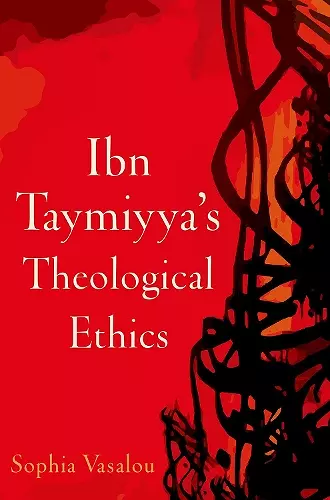Ibn Taymiyya's Theological Ethics
Format:Paperback
Publisher:Oxford University Press Inc
Published:19th Jul '18
Currently unavailable, and unfortunately no date known when it will be back
This paperback is available in another edition too:
- Hardback£115.00(9780199397839)

Icon of modern-day fundamentalist movements, firebrand religious purist, tireless polemicist against the intellectual schools of his time-the Ibn Taymiyya we know is a thinker we often associate with hard attitudes and dogmatic stances. Yet there is another Ibn Taymiyya that stands out from the pages of his work, the thinker who fashions himself as a master of the via media and as a defender of the harmony between human reason and the religious faith. The aim of this book is to shed fresh light on Ibn Taymiyya's intellectual identity by a close investigation of his ethical thought. Earlier Muslim thinkers debating ethical value had been exercised by a number of core questions. What makes actions right or wrong? How do human beings know it? And what is God's relationship to the evaluative standards discerned by the human mind? An investigation of Ibn Taymiyya's engagement with such questions has much to teach us about his intellectual program and particularly about the role of reason and the linchpin concept of human nature (fitra) within this program. It also has much to teach us about Ibn Taymiyya's relationship to the intellectual landscape of his time, bringing us up against a rich tapestry of ethical discussions unfolding within theology, philosophy and legal theory in the classical period. At the same time, a close reading of Ibn Taymiyya's ethics invites us to confront not only the content of his thought but its form, and more particularly those features of his writing that fracture our efforts to unify his thought.
Ibn Taymiyya is often misunderstood as a simplistic textualist. Sophia Vasalou's masterly book shows that his thought has several surprises in store. Her highly analytical engagement helps us to get at the bottom of his kind of rationalism; a rationalism that has influenced almost all branches of modern and contemporary thought in Islam. * Frank Griffel, author of Al-Ghazali's Philosophical Theology *
Vasalou's book grapples seriously, even intimately, with the ethical questions that animated Ibn Taymiyya, the larger-than-life intellectual figure who is often - and wrongly, as Vasalou shows - portrayed as a sui generis thinker. Vasalou traces the genealogies of Ibn Taymiyya's ethics in Sunni thought and provides thoughtful analyses of his creative departures from it. This is a major contribution to the study of Islamic ethics that significantly deepens our understanding of its historical genesis. * Ahmed El Shamsy, author of The Canonization of Islamic Law: A Social and Intellectual History *
This is the fullest and most philosophically sophisticated discussion to date of Ibn Taymiyya's utilitarian ethics and vision of human nature (fitra). Taking Ibn Taymiyya's prima facie alignment with the ethical objectivism characteristic of Mu'tazilism as her starting point, Vasalou masterfully shows that he in fact owes far more to medieval Ash'arism than he acknowledges. * Jon Hoover, author of Ibn Taymiyya's Theodicy of Perpetual Optimism *
ISBN: 9780190912512
Dimensions: 155mm x 231mm x 23mm
Weight: 567g
356 pages